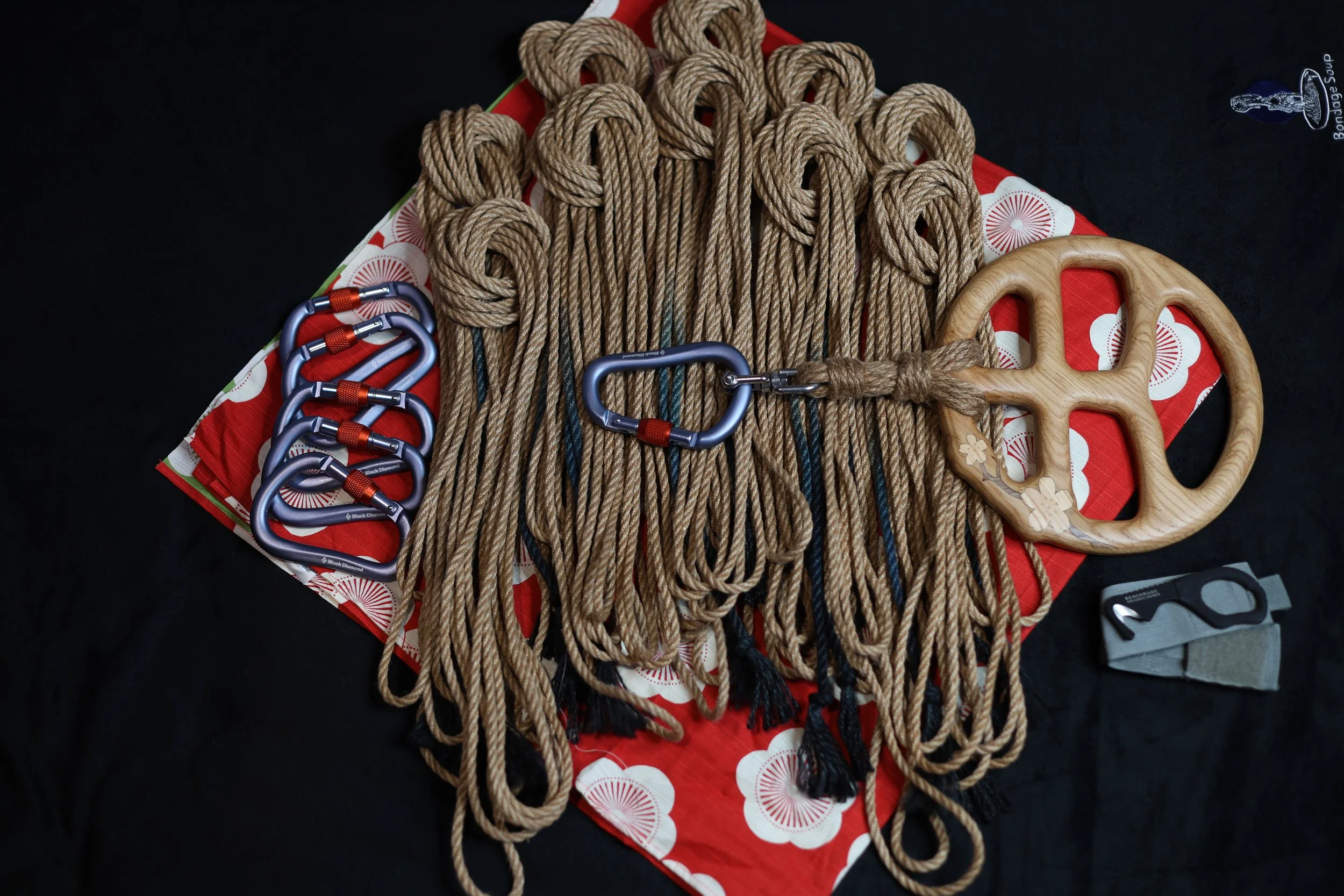How to Prepare for a Rope Session
How to Prepare for a Rope Session
Why preparation matters
A rope session is more than just rope, it’s about presence, awareness, and connection. Many people arrive unsure what to expect. They worry about what to wear, how to act, or how to stay safe.
Preparation changes everything. When you take a few small steps before your session, you show up grounded, confident, and ready to learn. That mindset creates a safer, more meaningful experience for both people involved.
Your first rope session can feel exciting and a little intimidating. That’s normal. The goal isn’t to impress anyone. It’s to show up ready to learn, connect, and explore safely.
Here’s how to prepare so you can relax and get the most out of your time.
What preparation actually means
Preparing for a rope session isn’t about being perfect.
It’s about caring for your body, mind, and communication.
Good preparation has three parts:
Physical readiness — eat, hydrate, and rest so your body feels steady.
Practical setup — wear clothing that moves with you and bring what helps you feel comfortable.
Emotional awareness — arrive early, communicate openly, and allow curiosity to replace performance.
These small things make your time in rope more fluid, connected, and enjoyable.
How to prepare step by step
1. Eat, hydrate, and rest.
A light meal a few hours before your session supports energy and focus. The meal should be something that you know that your stomach and body digests well.
Drink water and avoid alcohol or anything that dulls awareness.
Being rested and hydrated helps your body respond better and reduces dizziness or fatigue.
2. Wear comfortable, simple clothing.
Choose something soft and flexible — Any athletic leisure wear; leggings or shorts, short sleeve tops, tanks, sports bras all work well.
Try to avoid leather, lace, belts, and buckles.
If you’re unsure, bring a change of clothes and we’ll find what works best for your body.
Athletic leisure wear
Leggings, short sleeve t-shirt, tank top, sports bra
3. Bring your essentials.
Pack a water bottle, snack, notebook, hair ties, and anything you need to feel secure.
If you have injuries or conditions that might affect movement, let me know.
I will provide everything else you need; rope, suspension gear, emergency cutting device, barrier between you and the floor, blanket, and water.
Suspension rope kit and gear
Fully conditioned 6mm jute rope from MyNawashi, weight rated Black Diamond carabiners with locking gate, weight rated custom wood wrapped steel suspension ring with spinner, Benchmade 7 hook safety cutter
4. Arrive early.
Being on time matters.
It gives us time to talk about limits, boundaries, goals, and comfort before we begin.
That check-in is part of the practice. It sets the tone for trust and learning.
5. Communicate throughout.
You never have to “perform.”
You can ask questions, pause, or stop anytime.
Clear communication keeps you safe and builds trust. It’s one of the most valuable skills in rope.
6. Aftercare matters.
Aftercare is how we return to balance.
It might mean quiet time, a snack, or talking about what you experienced.
Write a few notes for yourself; what felt good, what you’d like to explore next time.
Aftercare
A freshly washed sheet, pillow and a warmed hospital blanket. With a cold bottle of water
7. Reflect and integrate.
Every session an opportunity to learn.
Progress in rope isn’t about how complex the tie is, it’s about experiences that give you awareness and connection.
Take a moment to celebrate showing up for yourself. That’s the real work.
Now: take your next step
Preparing well helps you stay present, safe, and confident.
It turns your session into a space for real learning and personal growth, not just rope technique.
If you’d like to experience a private shibari session designed for growth and trust, you can view current availability on the BOOKING CALENDAR tab.
Next post in the Rope Room Blog is Negotiation Basics for Rope Sessions on November 24, 2025




